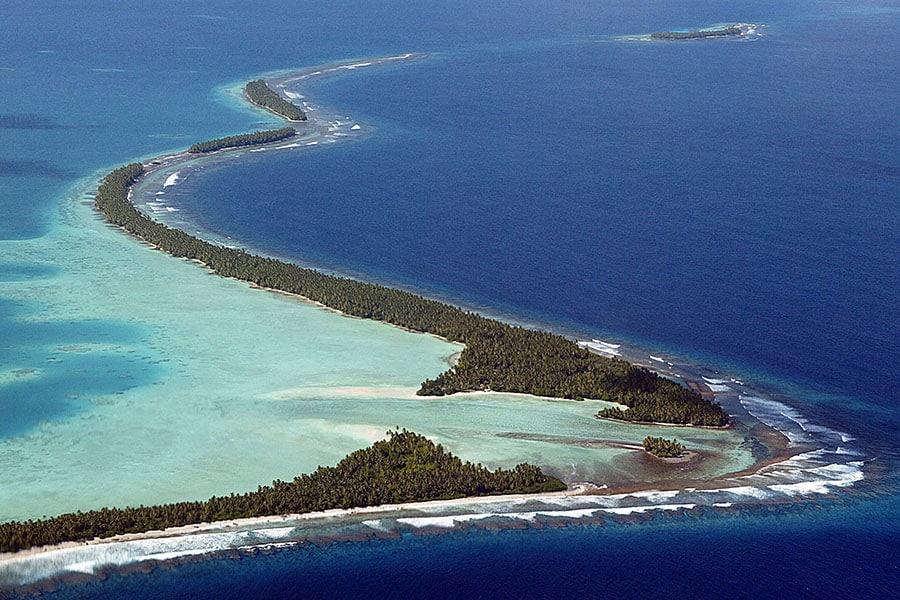
COP28: The move away from fossil fuels can't come soon enough for these countries
The negotiations at COP28, which comes to a close on Tuesday, December 12, are now entering their final stages
 The small Pacific island nation of Tuvalu is experiencing increasing problems of flooding and erosion.
Image: Torsten Blackwood / AFP
The small Pacific island nation of Tuvalu is experiencing increasing problems of flooding and erosion.
Image: Torsten Blackwood / AFP
One of the key objectives of COP28, which ends on December 12 in Dubai, is to reach an agreement between the negotiating states on a roadmap for moving away from fossil fuels. This is a matter of survival for the island states of the Pacific, the Indian Ocean and the Caribbean, which are on the front line and bearing the full brunt of the effects of climate change.
The negotiations at COP28, which comes to a close on Tuesday, December 12, are now entering their final stages. One week after the opening of this year's Conference of the Parties in Dubai (United Arab Emirates), the third version of a draft agreement was published on Friday, December 8. This is all the more crucial given that COP28 is associated with the preparation of the first global assessment, designed to take stock of progress since the commitment made by states to limit global warming to below 2,° or even 1.5°C, in accordance with the Paris Agreement signed in 2015. After some major surprise announcements on the very first day of the COP (notably the creation of a fund to subsidize the most vulnerable countries in the South, those hardest hit by the climate crisis), the progress of negotiations between the representatives of the states on site led to some strong commitments, notably that of tripling the production of renewable energies by 2030.
But the hardest part still lies ahead: finding a way out of using fossil fuels. And this is a matter of urgency: current levels of carbon dioxide in the atmosphere stand at 420 ppm (parts per million), levels not reached for 14 million years on Earth, according to a study published on Thursday, December 7 in the journal, Science. The end of fossil fuels is even more of a necessity for the island countries of the South, which are the hardest hit by global warming. This is particularly true of Bangladesh, one of the world's most threatened countries, highly vulnerable to cyclones, landslides and rising sea levels. But it's not the only one.
On the edge of the Indian Ocean, the Maldives archipelago has the lowest altitude in the world: 80% of its territory is just one meter above sea level, making the country so vulnerable that it could be wiped off the map by 2100. More than 2,000 km away from the Maldives is the Seychelles. This island country is also highly threatened by rising sea levels, as well as by ocean acidification, notably threatening its coral reefs.
Also read: India at CoP28: Promises and perils in the way of climate action







